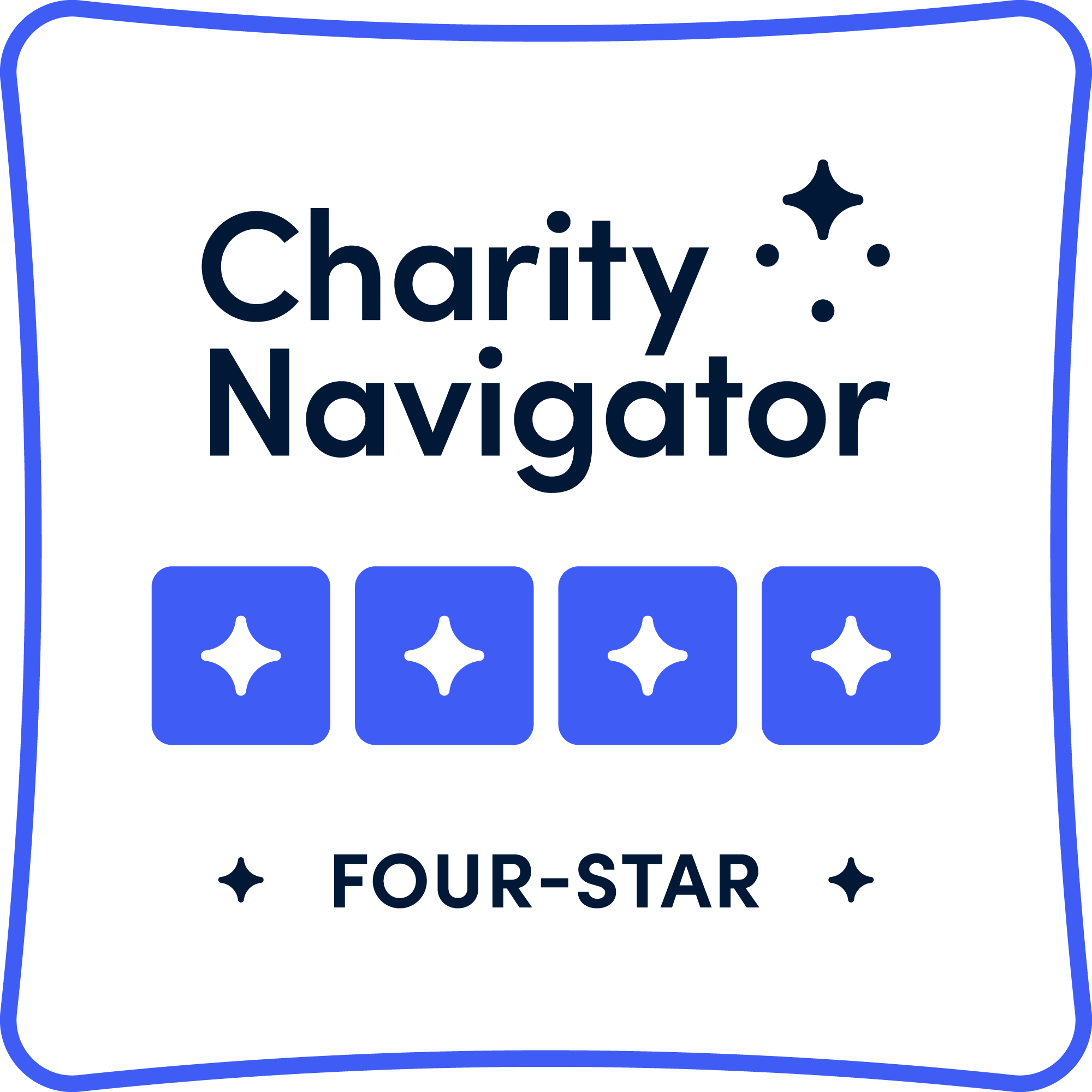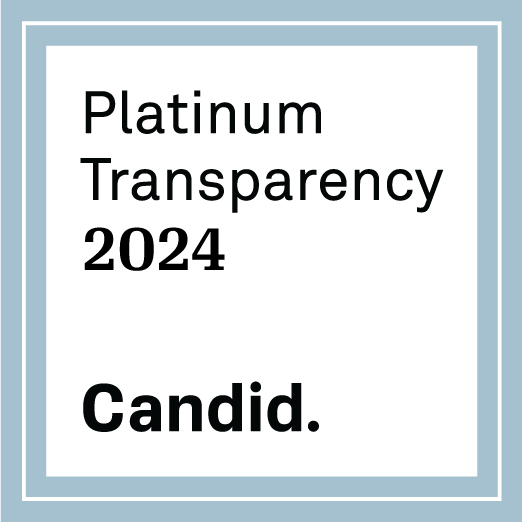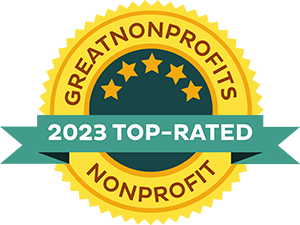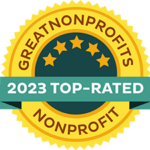STAY SAFE: PROTECTING YOUR INFORMATION AFTER A DISASTER
JANUARY 26, 2023
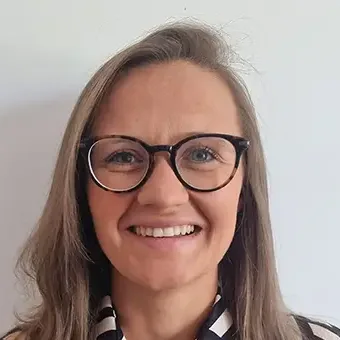
Written by Izzy Smith, Chief Information Officer, All Hands and Hearts All Hands and Hearts is committed to protecting the privacy of our volunteers, partners, donors and the community members we work alongside. With over a decade of experience in the nonprofit sector, Izzy brings technical and operational knowledge to the role of Chief Information Officer. As the CIO, Izzy has overseen the establishment and refinement of the organization’s specific data privacy and security program.
THE RISE IN RISK
Communities impacted by disasters have long been targets of scams.
Those impacted by extreme weather events have often lost access to key documentation, have intermittent internet access and are often under financial stress. This makes them especially vulnerable. Unfortunately, the prevalence and ingenuity of fraudsters has increased exponentially since the COVID-19 pandemic.
All Hands and Hearts (AHAH) has supported communities impacted by disasters for over 17 years. Through our years of experience working closely with individuals and households post-disaster, we have witnessed many opportunistic scams exploiting the vulnerability of affected individuals. Some of the most common scams include impersonating government officials, insurance agents, FEMA property inspectors, nonprofits and building contractors, to name a few. These efforts can take a variety of forms online, in-person and over the phone.
.
PREPARATION IS KEY
Being prepared is key to protecting yourself and your loved ones from the risks of potential scams post-disaster. Knowing the common scams can help you stay vigilant and respond when you think you might be at risk, helping to keep you and your family’s finances and information safe. In addition to sharing how to spot such scams, in this article, we will also share how to get help from legitimate and trusted sources to support recovery from a fraudulent incident.
All Hands and Hearts believes deeply in the transformative power of people helping people. The guidance and warnings we detail are not intended to create inherent mistrust but rather inform and protect us when we are vulnerable and at risk of being victimized by smart, targeted criminals.
CONTRACTOR SCAMS AND FRAUD
The high demand for contractors after a disaster can lead legitimate businesses to raise prices, inflate capabilities and over-commit. In this environment, fraudsters often pose as contractors and play on a homeowner’s vulnerability.
Unfortunately, this is one of the most common scams AHAH’s teams hear from disaster-affected people.
Below are some ways you can protect yourself from these scammers:
- If possible, ask your insurer for a list of approved contractors.
- Utilize the National Association of State Contractors Licensing Agencies (NASCLA) to check references and licensing.
- There is no such thing as ‘FEMA-certified’; this a common phrase we’ve heard scammers use to generate confidence in their scam.
- Never agree to work or sign a contract during your first interaction; if someone is pressuring you to take immediate action this is common sign that something isn’t quite right.
- Require and carefully read any contracts and ensure the agreed scope is detailed with clear expectations around cost and time.
- Don’t pay up front and if possible use a credit card as this allows you to reverse fraudulent charges after the fact.
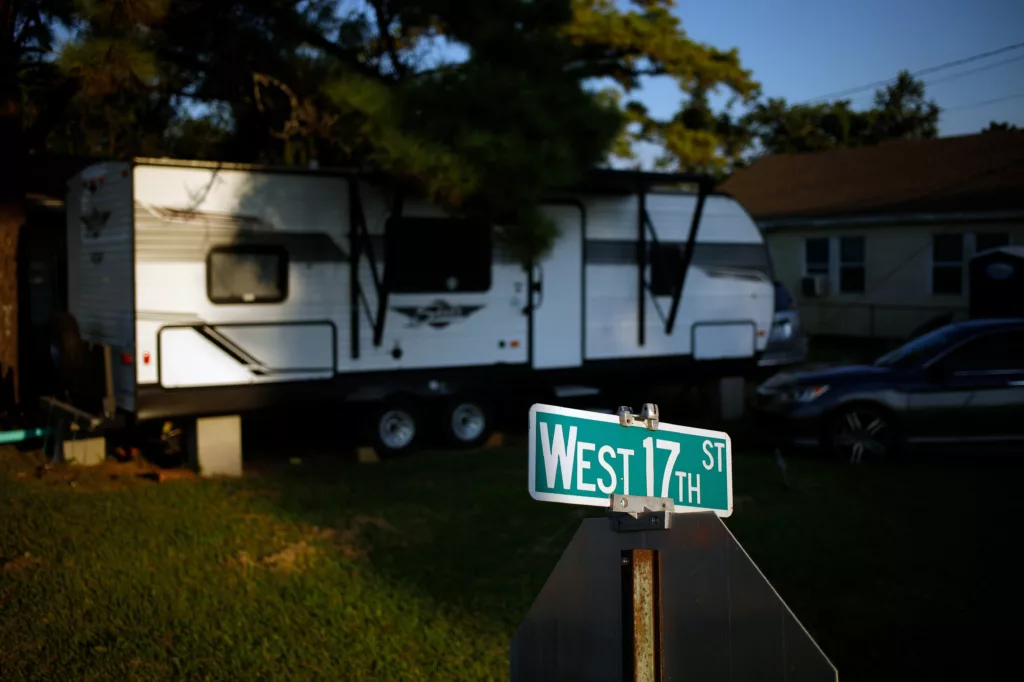
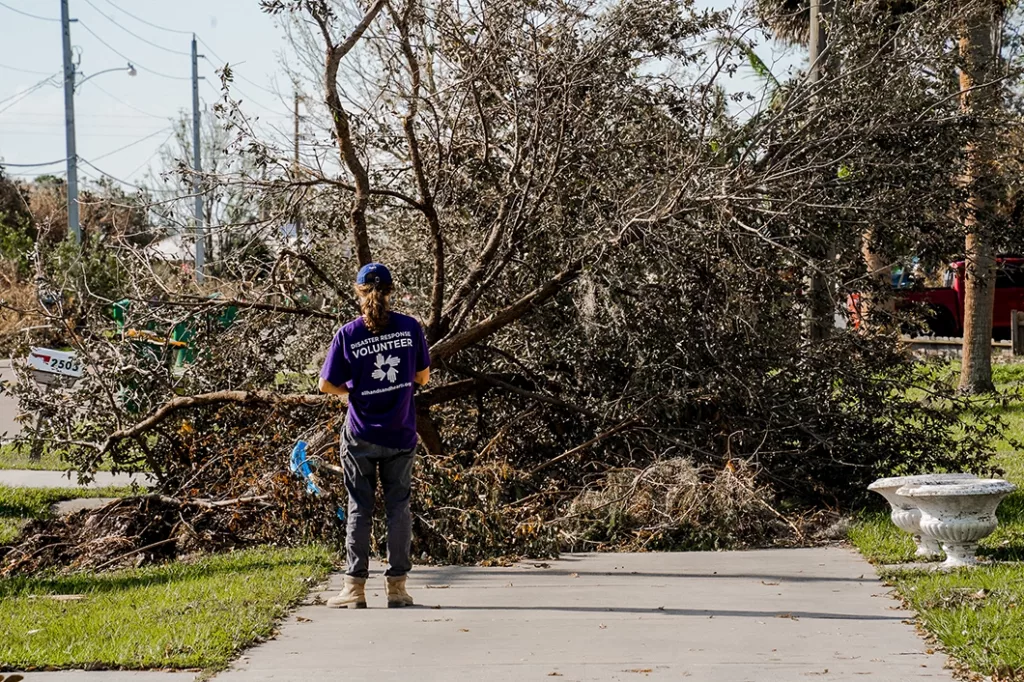
FINANCIAL SCAMS AND IDENTITY THEFT
After a disaster, through the increased regularity of applying for grants and government assistance, the sharing of sensitive information routinely, like your social security number, can be normalized. In this context, opportunistic criminals will run rackets to falsely gain personal information that will allow them to steal your identity.
We’ve even heard reports of scams using this information to apply for FEMA grants on your behalf and divert the funds to their accounts.
Here are some of the ways you can protect your personal and financial information from these scams:
- Applying for any support from non-profits, foundations, or the government is always free; government officials of FEMA, HUD and the Small Business Administration will never charge for their services.
- Never share sensitive information, like your social security number, without confirming and validating someone’s identity.
- Know your FEMA application number and make sure that this is the information used to identify your case, rather than your social security number, name, phone number etc.
- Always initiate contact and beware of cold calls. Ask for a return phone number and try to validate it’s an official number related to the organization, for example, through an online search.
- Again, if you are being pressured to take immediate action or make a payment, this is a common sign of fraud.
FAKE CHARITIES
Only work with organizations you know and trust. Criminals set up fake donation pages and send out communications to garner donations under the guise of supporting disaster-impacted communities. Here are some ways to avoid this type of scam:
- Use Charity Navigator and give.org to validate any organizations you come into contact with.
- All representatives of an organization should be able to provide validation and identification when asked.
- Validate the email, website or phone number connected to the purported organization; often fraudsters often impersonate organizations, so check the person you’re dealing with is legitimately connected.
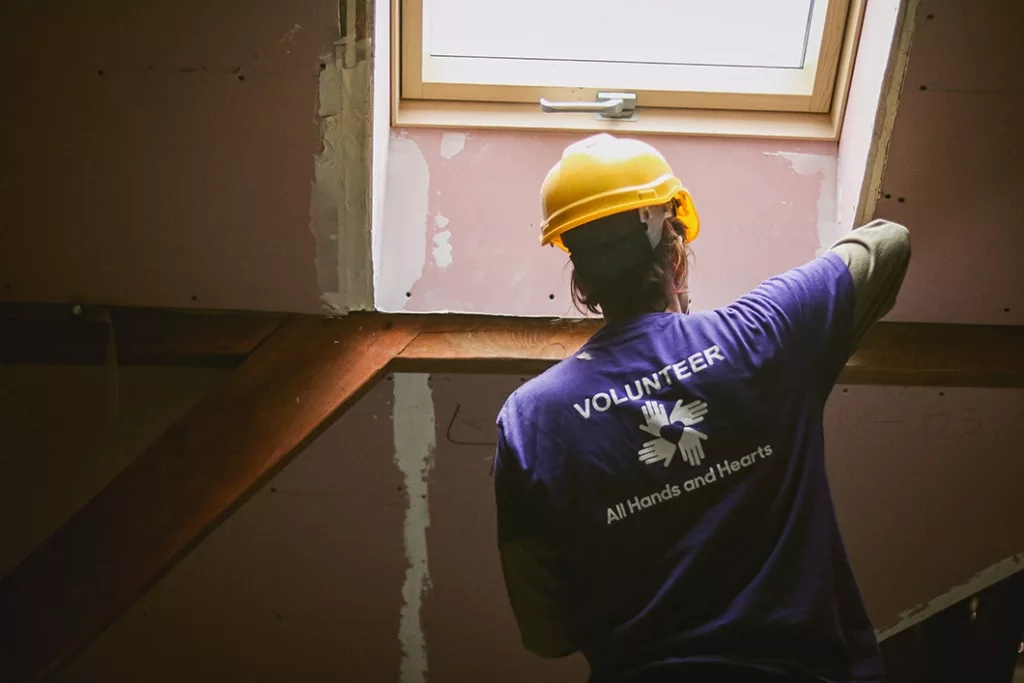
WORKING WITH ALL HANDS AND HEARTS
In our role as a leading volunteer-powered, disaster-response organization, we take our responsibility to guard and securely store the information of our clients seriously. To help identify our teams, our staff and volunteers will always be wearing branded purple or gray t-shirts. Our teams will never accept or request payment and will always work with you at your own pace. We will clearly and slowly discuss the work and walk you through our paperwork, explaining and answering any questions you may have.
We will never ask for your social security number, but we will ask you for some personal information and how you’ve been impacted by the disaster to help us identify if and how we might be able to support your recovery.
All this information is stored in our secure systems and access is carefully controlled. After a program closes, access is further restricted and generally, this information is viewed only in aggregate. Our privacy policy details how AHAH stores, shares and retains information about community members, donors and volunteers.
If you are unsure, please reach out to AHAH’s central team to validate any activities at [email protected] or call on 508-758-8211.
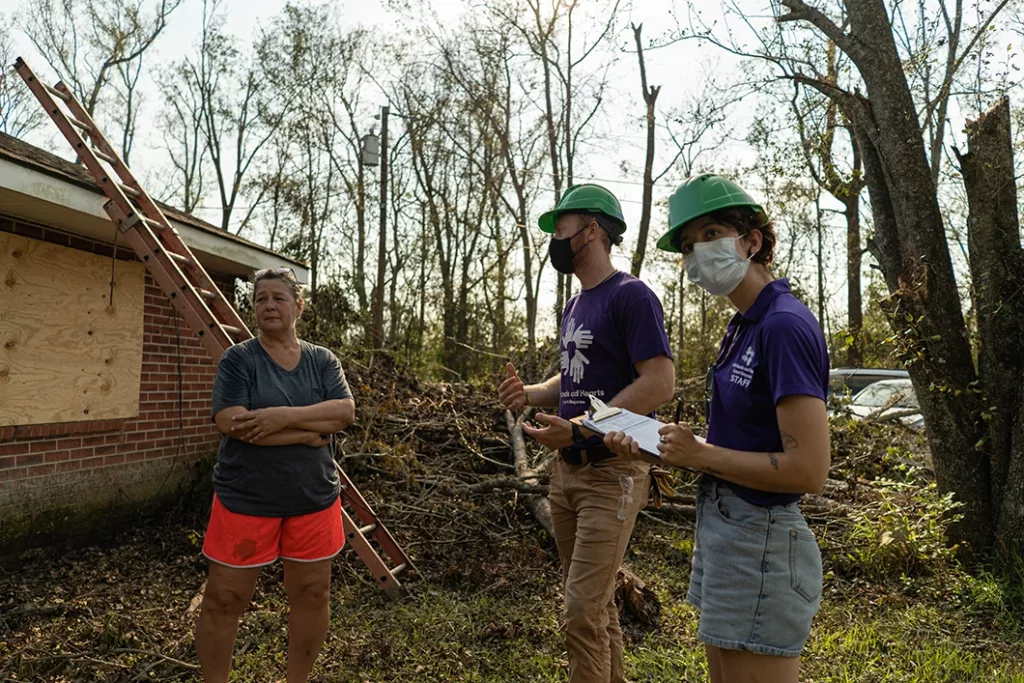
WHAT TO DO IF YOU THINK YOU HAVE BEEN IN CONTACT WITH A FRAUDSTER
Hopefully, this guide will help us be more vigilant and aware of potential fraud attempts after a disaster. We know how stressful these moments are and even the most informed and prepared may become prey to convincing and well-executed confidence criminals. Knowing what to do next to protect yourself and others is key.
If you believe you have been targeted by fraudsters or been the victim of disaster-related fraud, you should contact the National Center for Disaster Fraud (NCDF) at 866 720-5721, or online at www.justice.gov/DisasterComplaintForm




